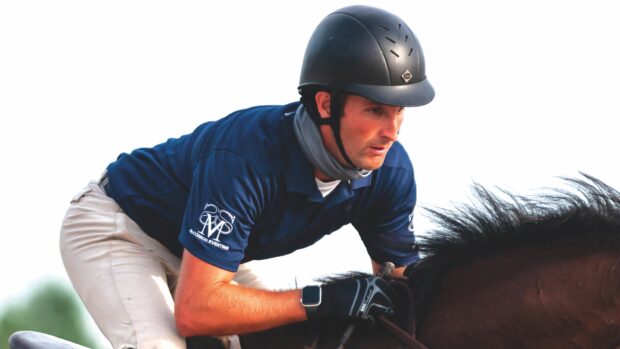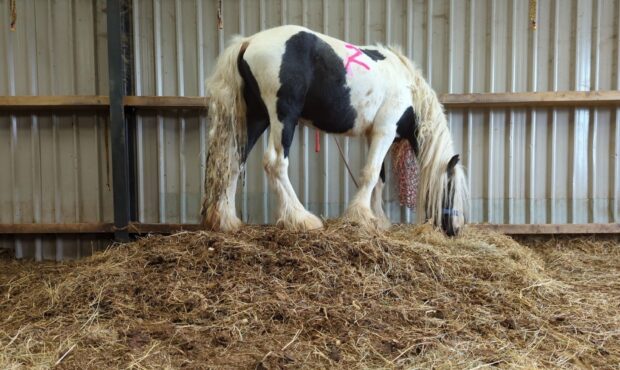Four-time dressage Olympian and former British World Class performance manager, Richard Davison, discusses the challenges surrounding the public’s perception of horse sport and shares his ideas to protect its future
Our family stables has as many showjumpers as dressage horses. Consequently, I spend as much time with the showjumping community as I do with the dressage crowd.
At the start of this year, Di Lampard and I were invited by performance manager Dickie Waygood and coach Chris Bartle to collaborate on a number of World Class eventing squad training sessions. During breaks, our conversations ranged across the board, but one theme that kept cropping up was the impact of social licence on each of our disciplines.
When it comes to the use of horses in sport, society can be divided into the groups at each end of the spectrum – those who already oppose or accept it – but with another large faction of those who are undecided in the middle. Our focus should be on providing information to influence this latter group.
In this digital age, both information and misinformation travel fast. Artificial intelligence influences which internet links we open and how some people will vote in elections. The good news is that having just asked ChatGPT whether the use of horses in equestrian sports is ethical, it came up with balanced answers. But if that equilibrium is to remain, then additional positive input will be needed. We must all take ownership of this, but especially our governing bodies.
So far, I have been disappointed at the lack of collaboration between the FEI Equine Ethics and Wellbeing Commission and FEI rider and trainer clubs. Scrutiny and review of regulations is critical, but if we are to avoid own goals in the form of negative headlines generated from internal squabbles, improved collaboration will be key.
Regardless, whether or not our governing bodies have appointed ethics advisors will have little influence on public opinion compared with digital headlines and optics. We need promotional material in our sports similar to Racing Victoria’s production, Here for the Horses. The film depicts all aspects of horse welfare from birth to retirement, and reflects the care and devotion of those who provide it.
We must engage with the public
It is not just the digital platforms we need to engage through. In between dressage and jumping classes at the Royal Windsor Horse Show, I observed how the public – ranging from general equestrians to tourists – marvelled at the fiesta of horse sport. These visitors clearly had open minds, but I wondered what we were doing to underpin that state of affairs should any adverse information come their way?
The British Horse Society had an impactful physical presence there, but shouldn’t all equestrian disciplines be engaging directly with the wider public at large events?
Why don’t we give welfare awards at publicised events? We often justify equestrian sports by explaining that if horses didn’t want to comply, they would not, implying that we do not force them.
At Badminton, I would have given Pippa Funnell my welfare award when Billy Walk On refused to jump into the water complex. We saw a rider using her judgement to retire, putting her horse’s interests before her own.
There were other riders and grooms who demonstrated commendable acts of welfare and rewarding them could have served to position them as role models for others and generated positive media material.
I’m not suggesting that this should be used to cover up welfare violations. But a sense of the scale of frequency of positive and negative acts of welfare is needed if the public are to make informed judgement on our sport.
Like it or not, society is influenced by media headlines and optics, so let’s ramp up the production of positive welfare material. There are ample examples and we need the public to see them.
● Would you like to see more riders and grooms rewarded for good welfare? Let us know at hhletters@futurenet.com, including your name, nearest town and county, for the chance to have your views published in a future edition of Horse & Hound magazine
- This exclusive column will also be available to read in Horse & Hound magazine, on sale Thursday 15 June, 2023
You may also be interested in…

Adam Cromarty: ‘Within 10 years, whips and spurs will be banned in competition’

Anna Ross: ‘We must engage with horse sport’s critics’

Nick Skelton: ‘We don’t abuse our horses – we’ve nothing to hide’

Subscribe to Horse & Hound magazine today – and enjoy unlimited website access all year round
Horse & Hound magazine, out every Thursday, is packed with all the latest news and reports, as well as interviews, specials, nostalgia, vet and training advice. Find how you can enjoy the magazine delivered to your door every week, plus options to upgrade your subscription to access our online service that brings you breaking news and reports as well as other benefits.



